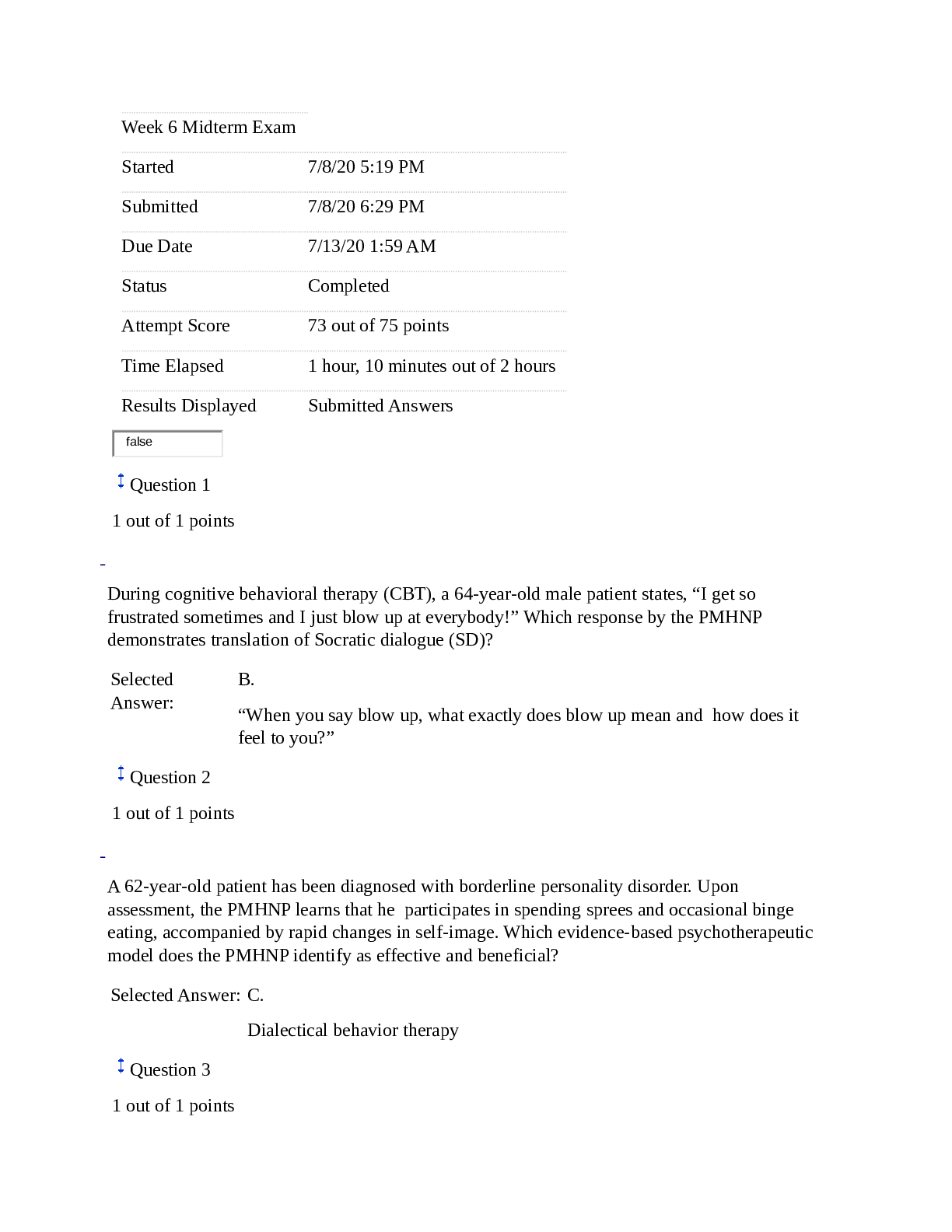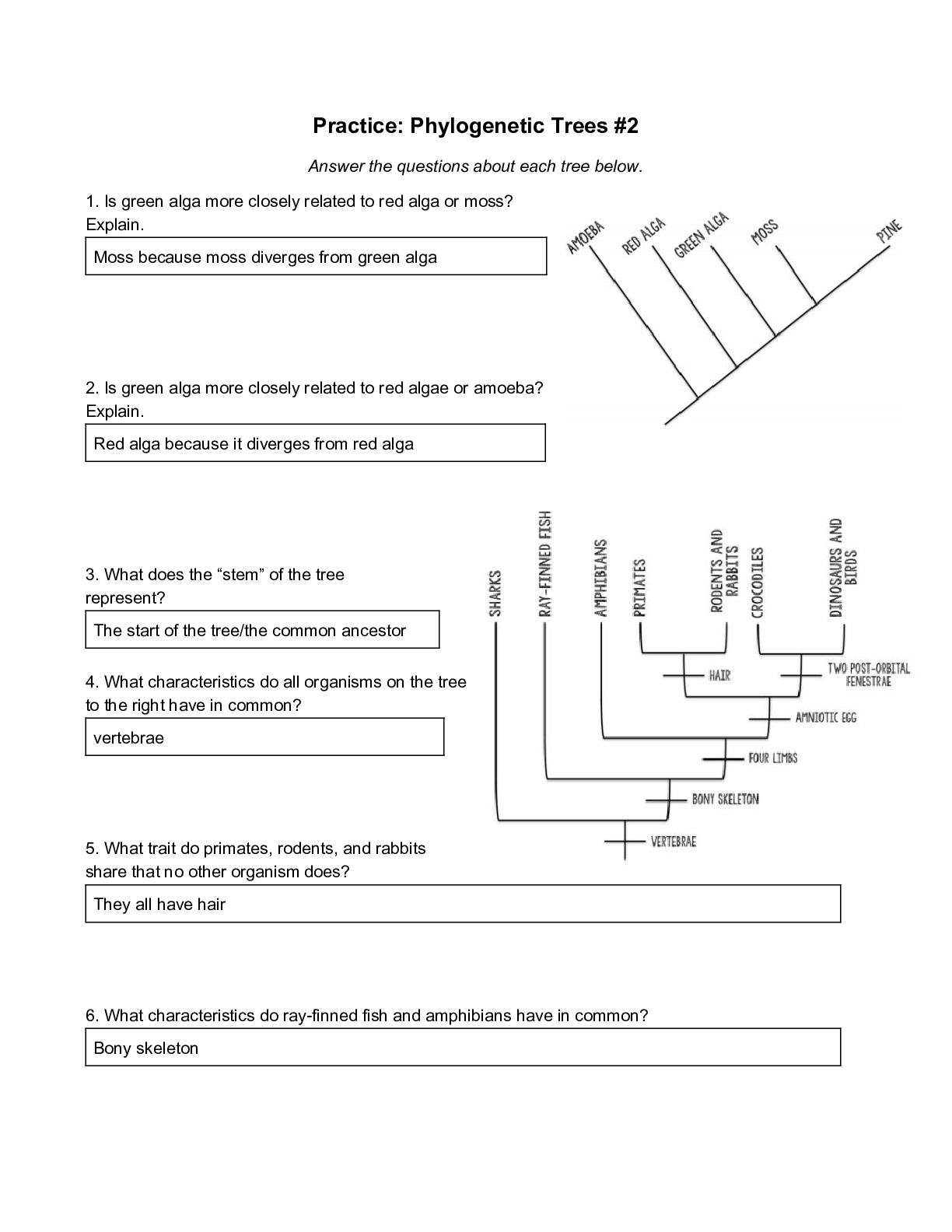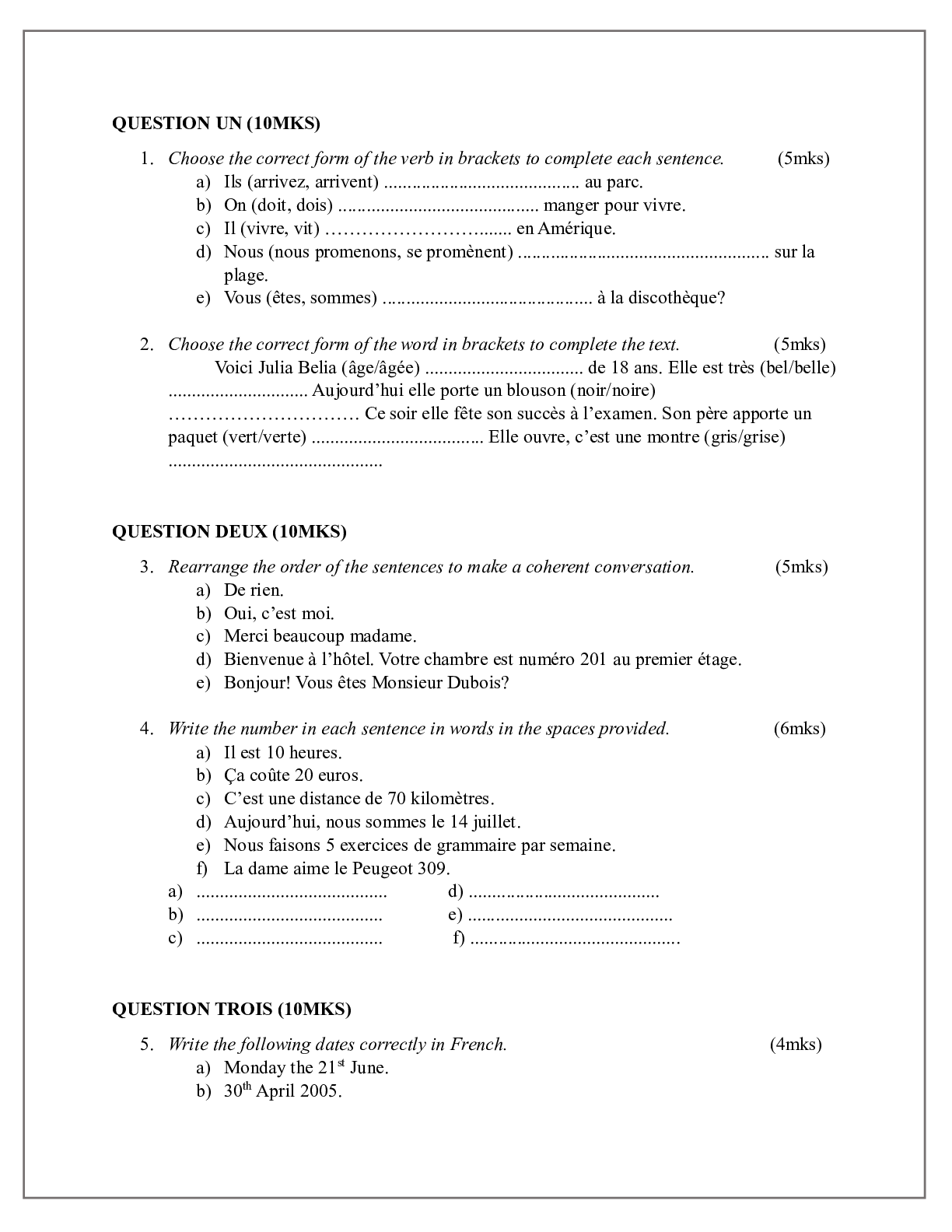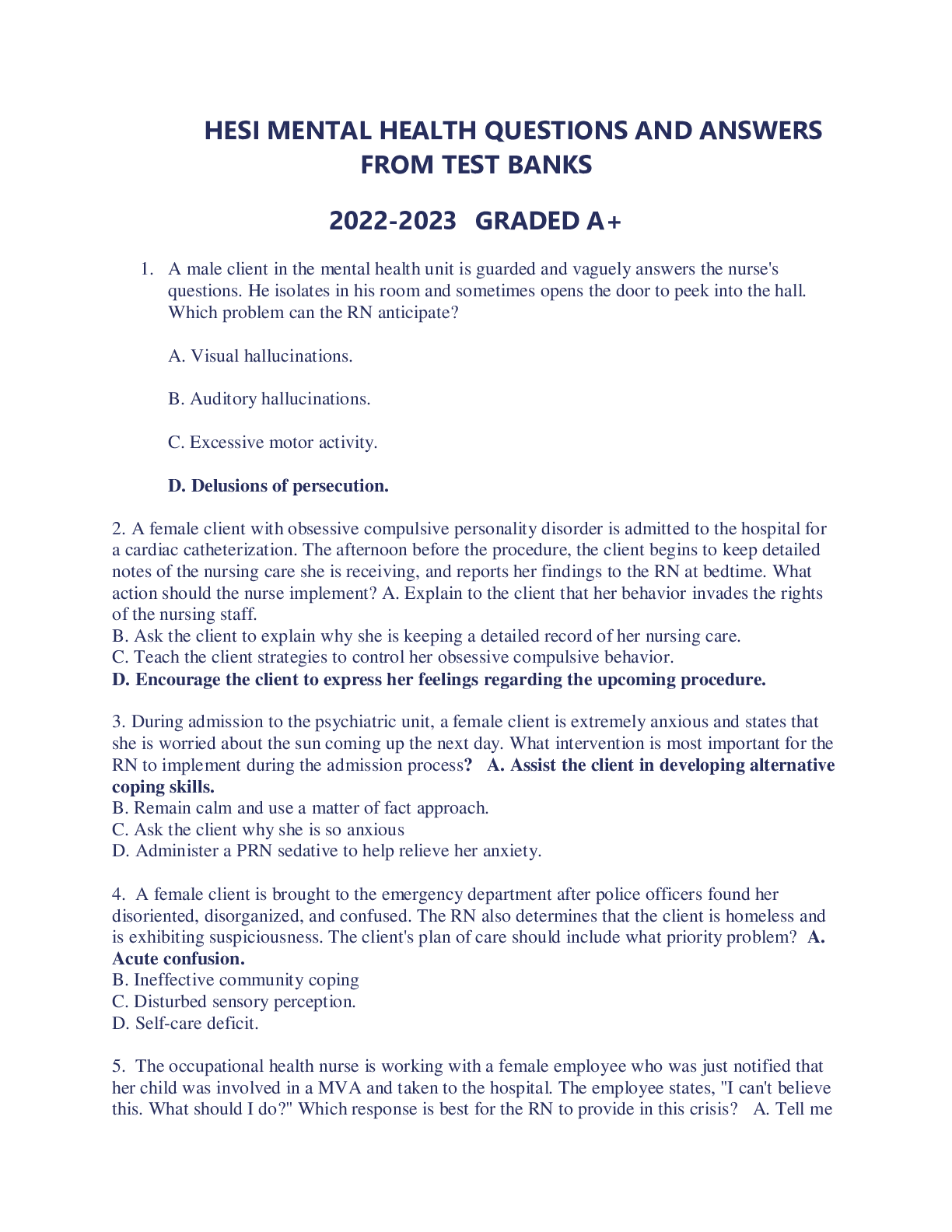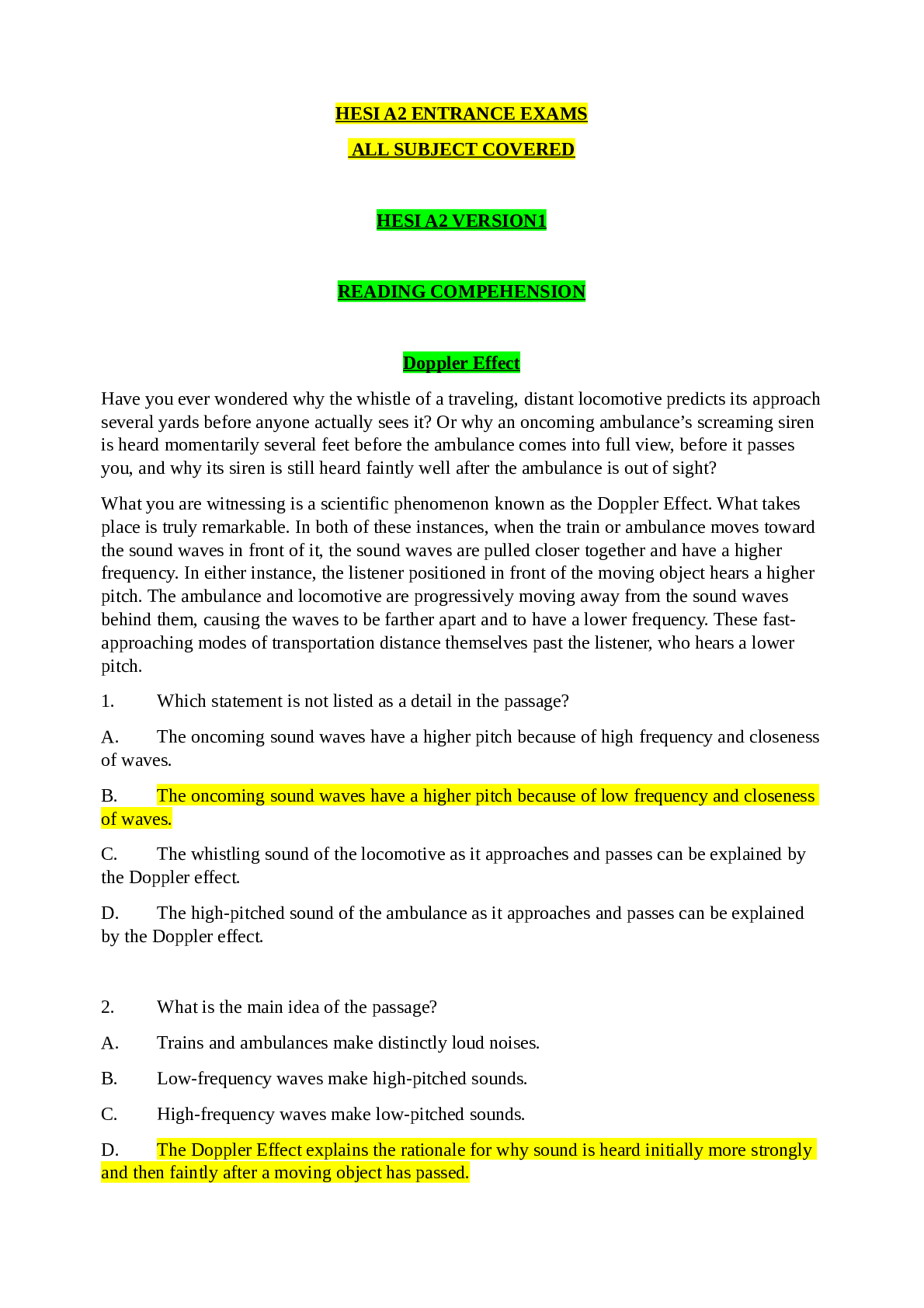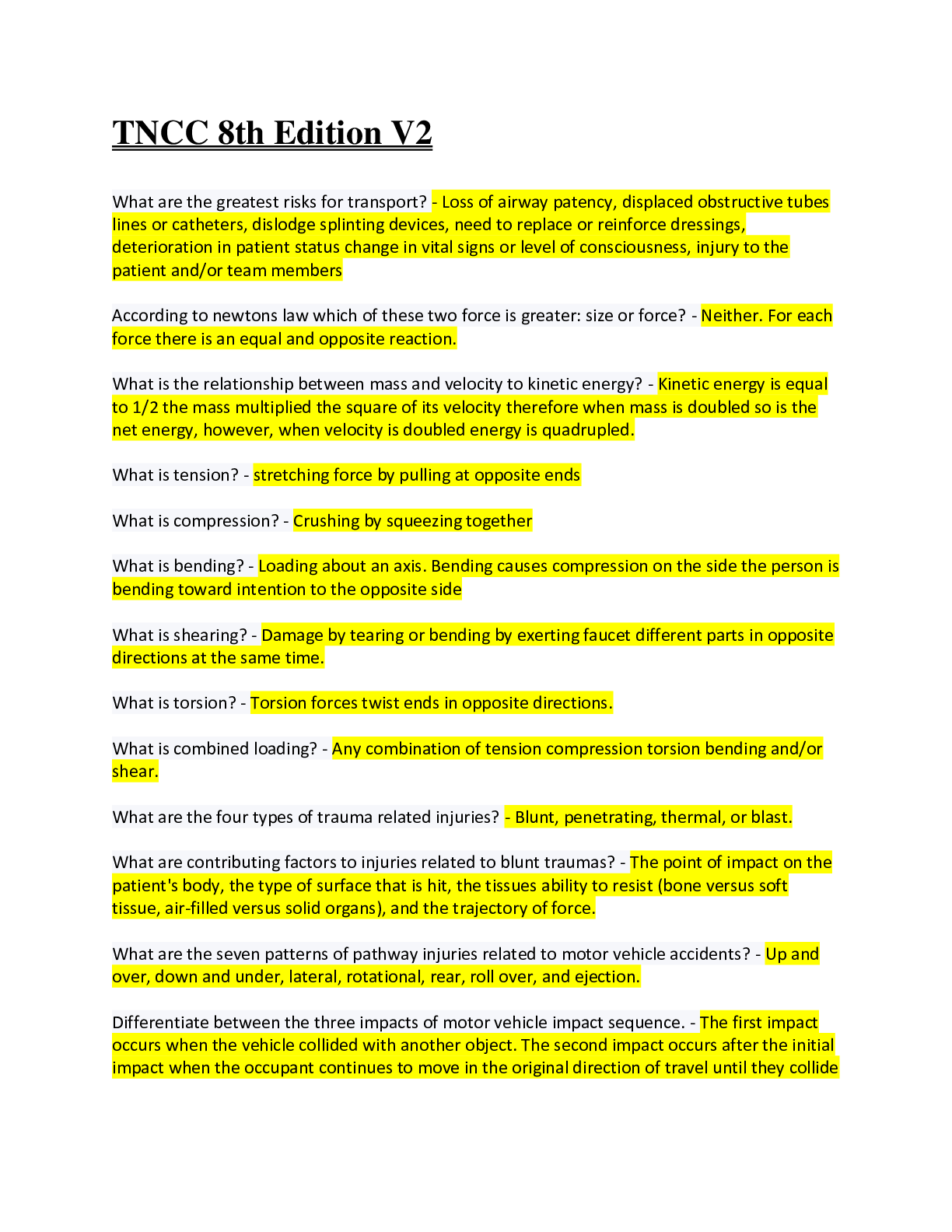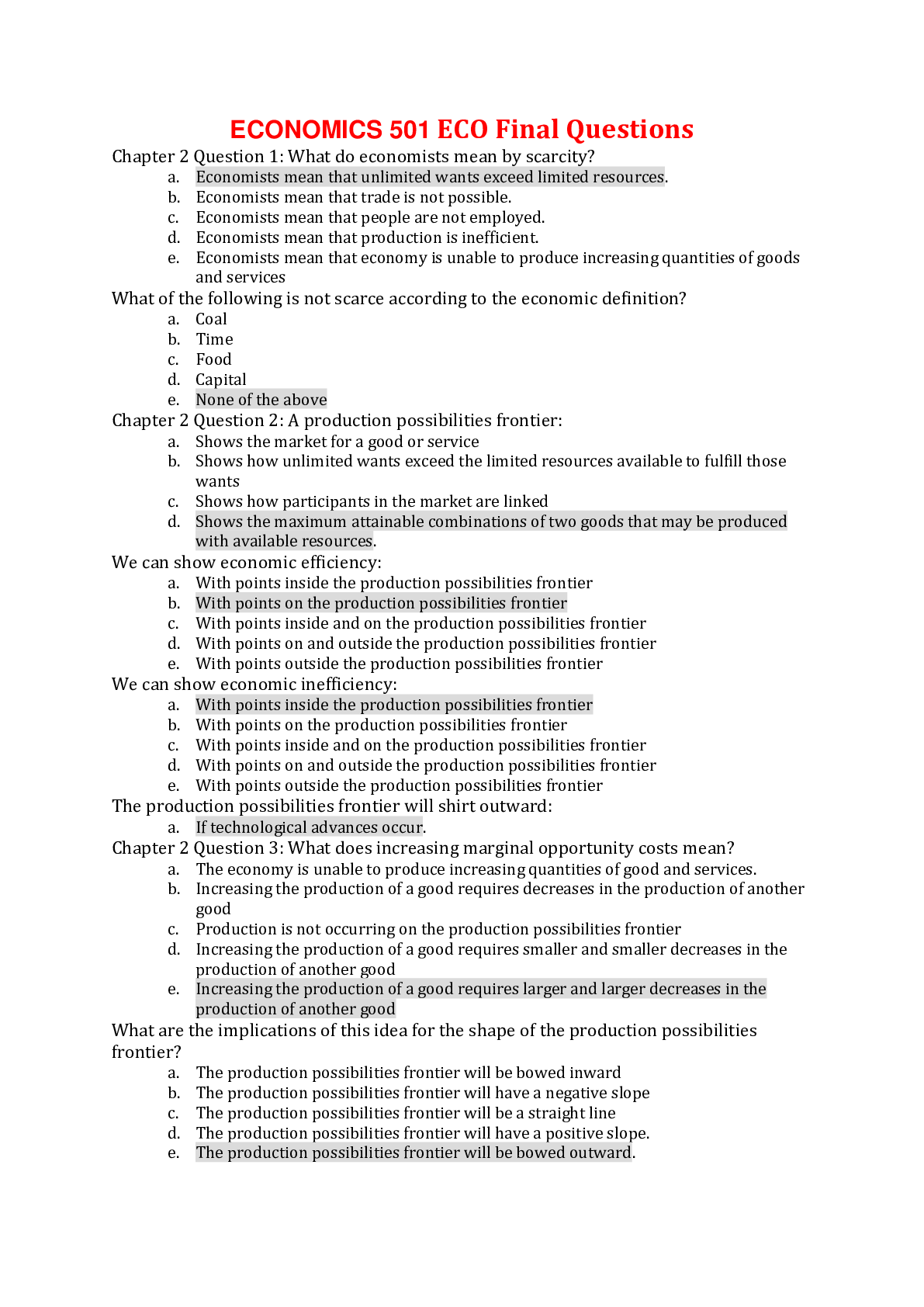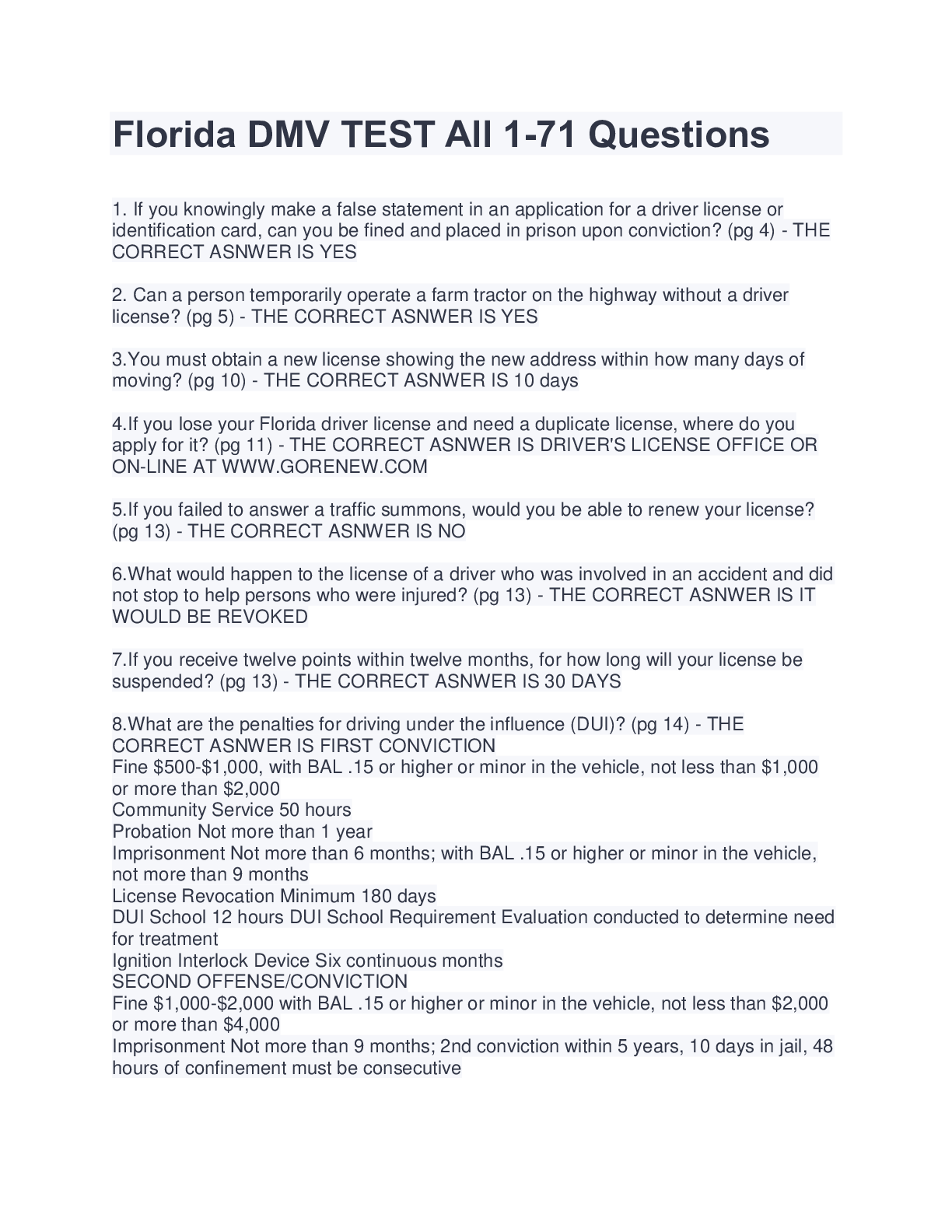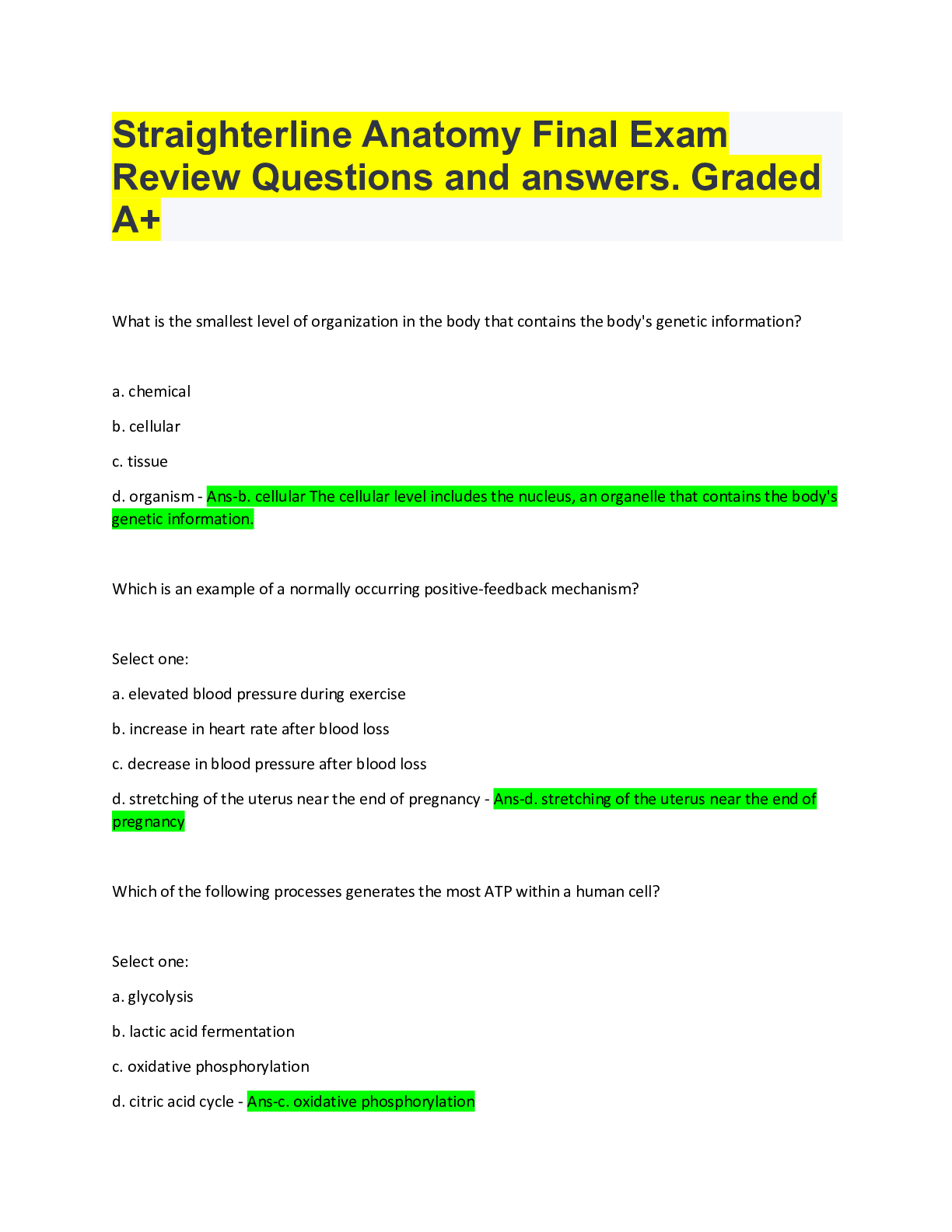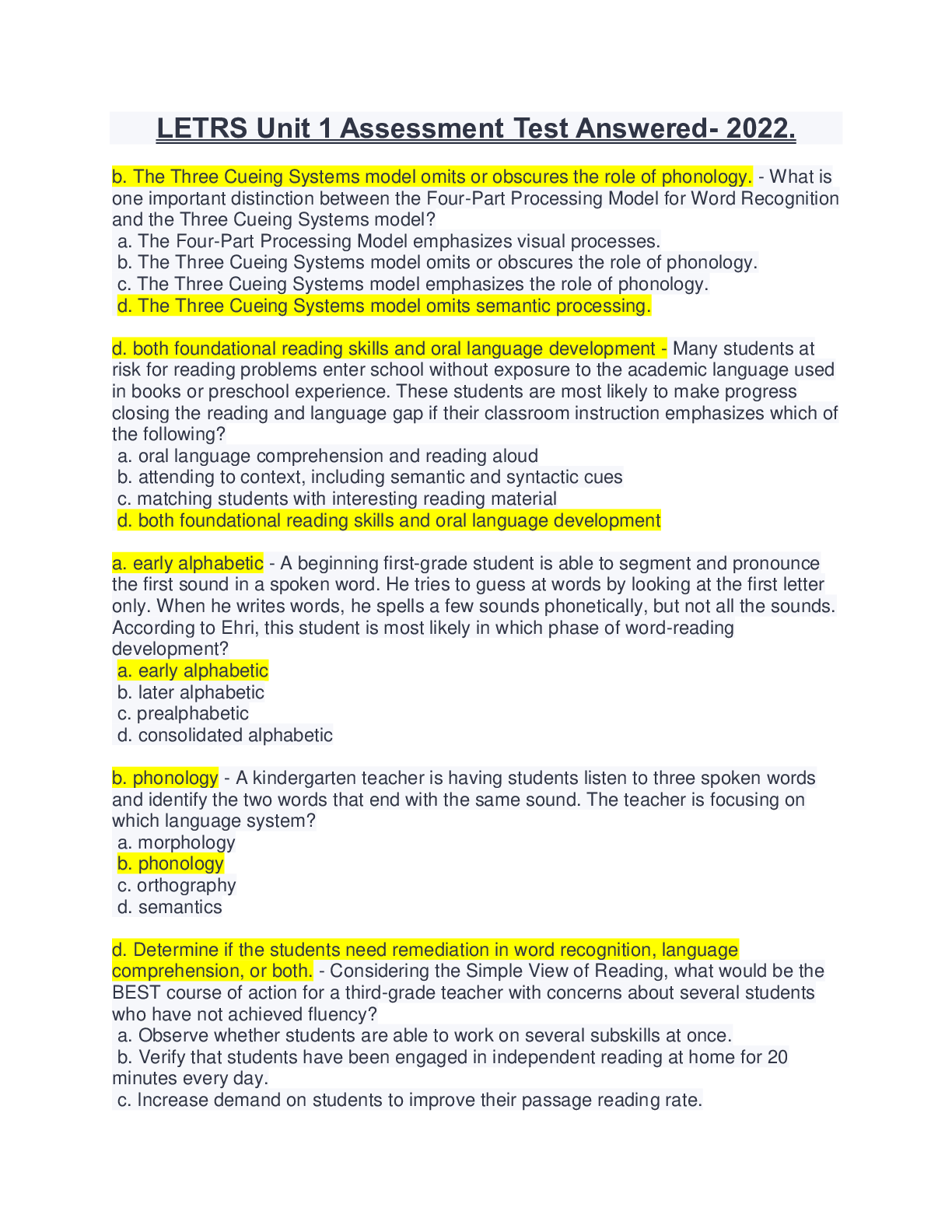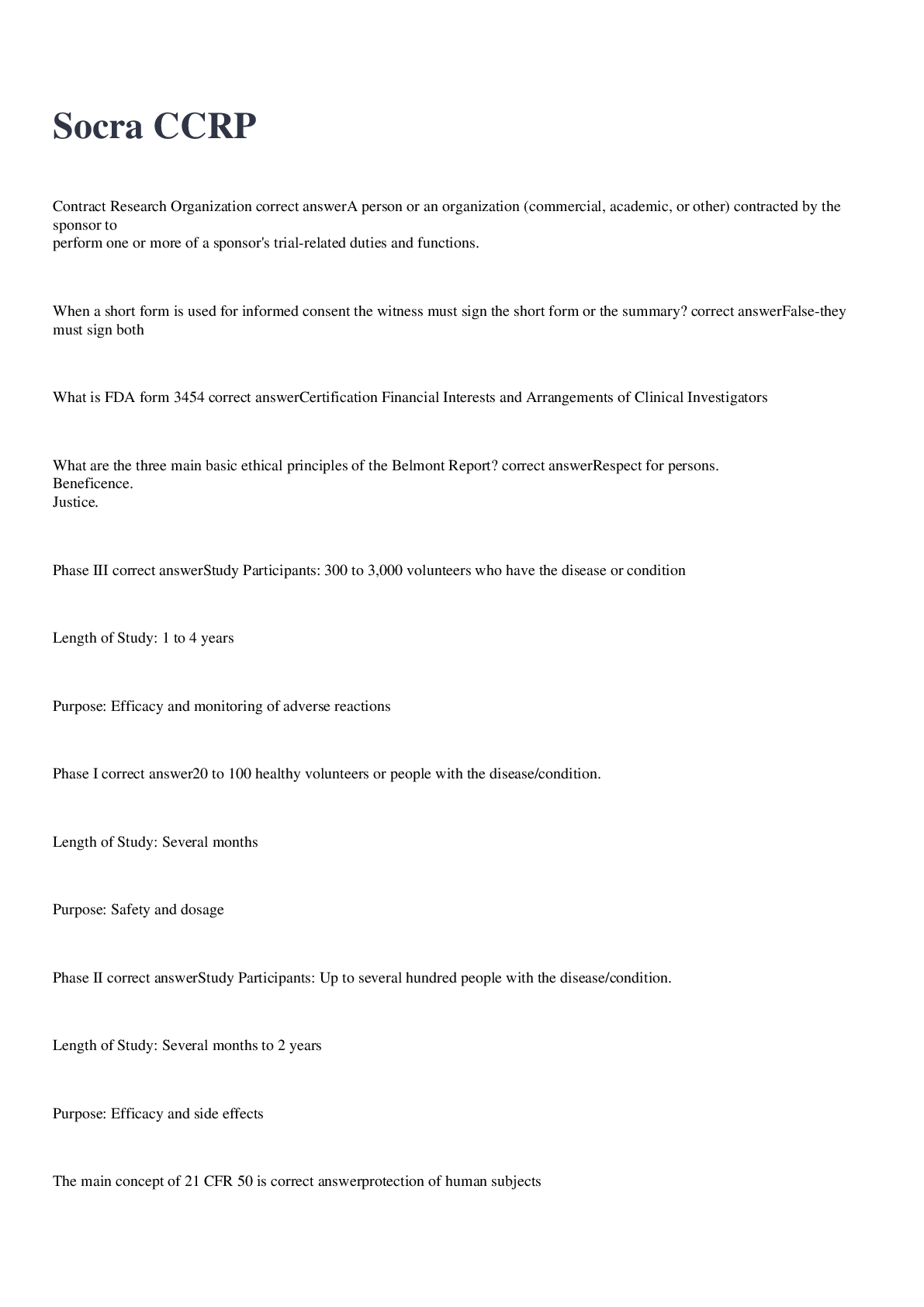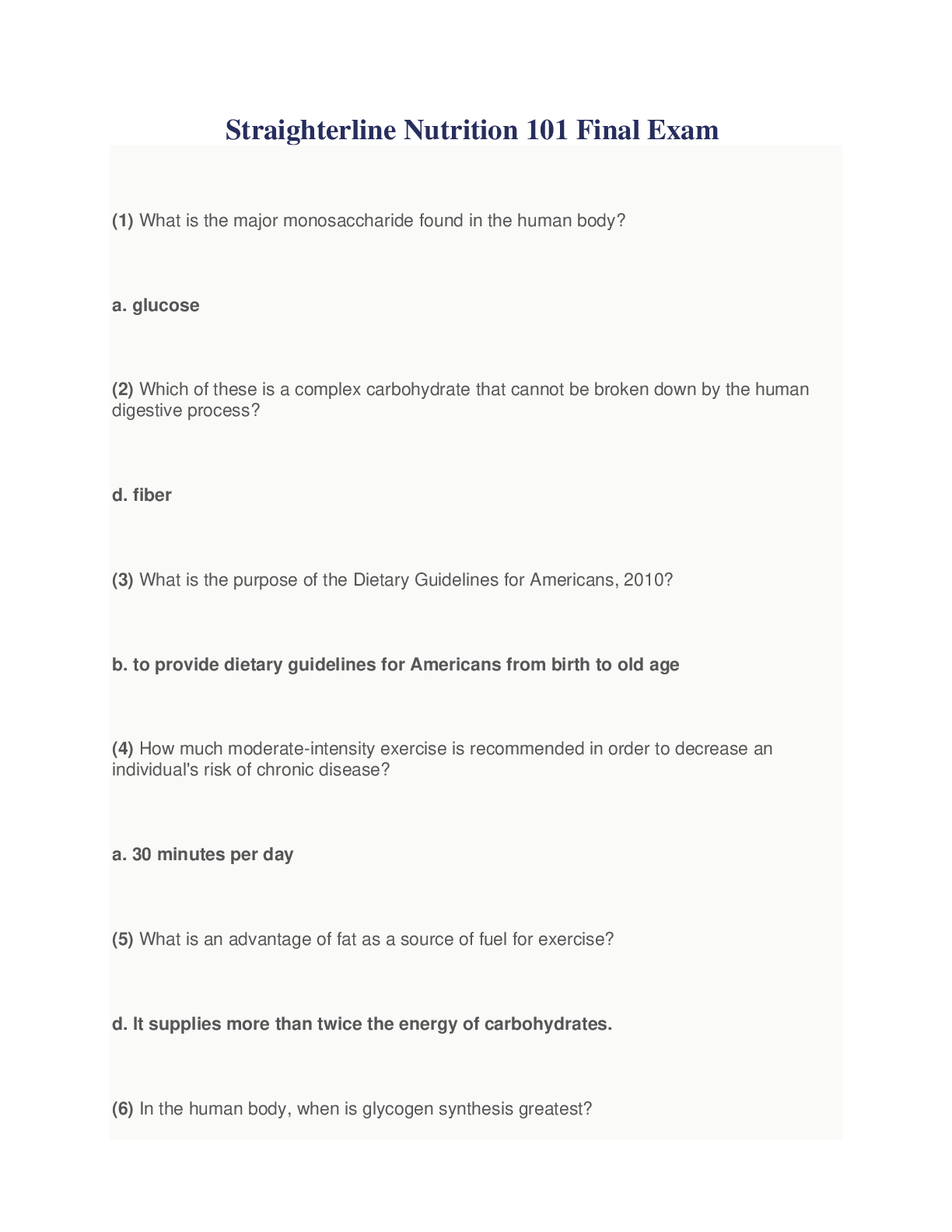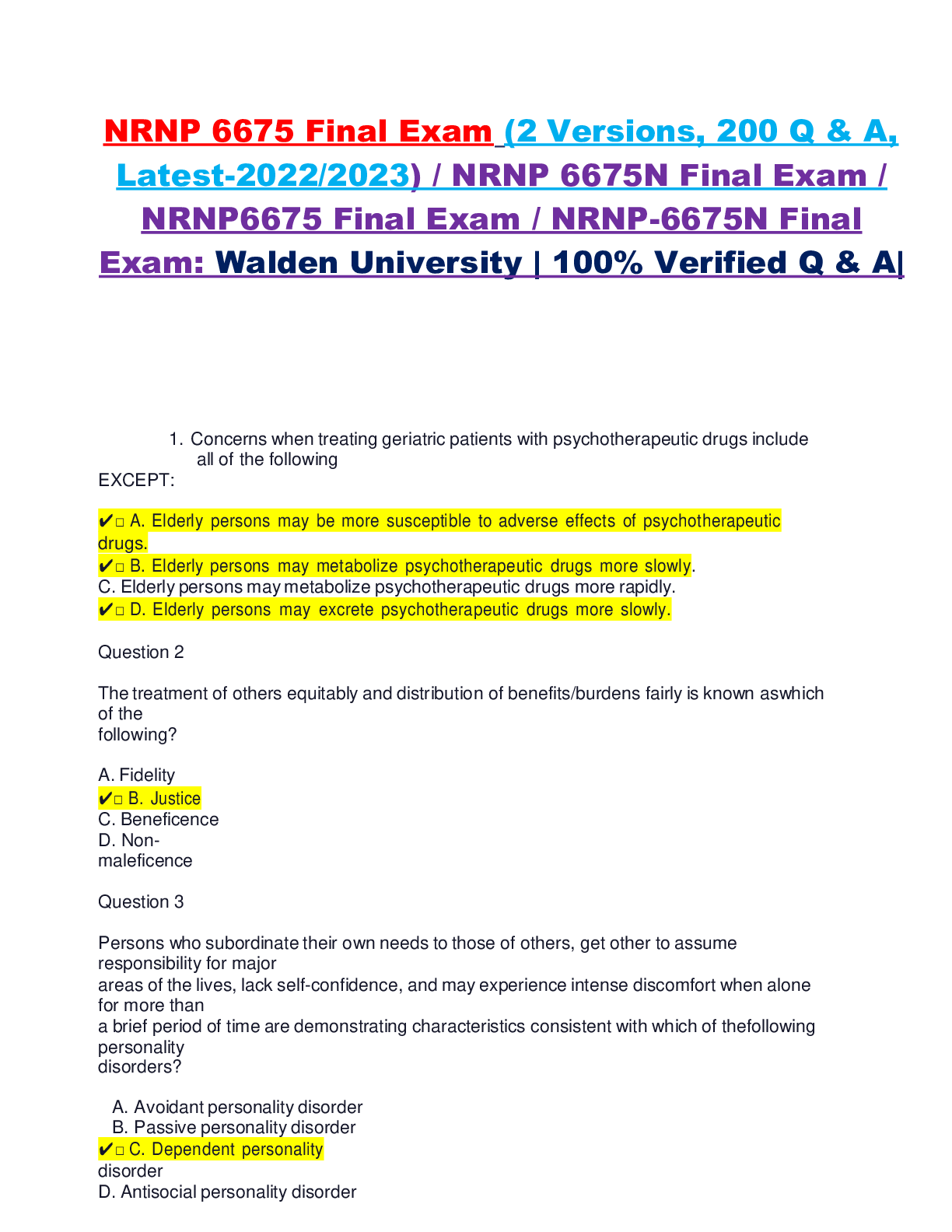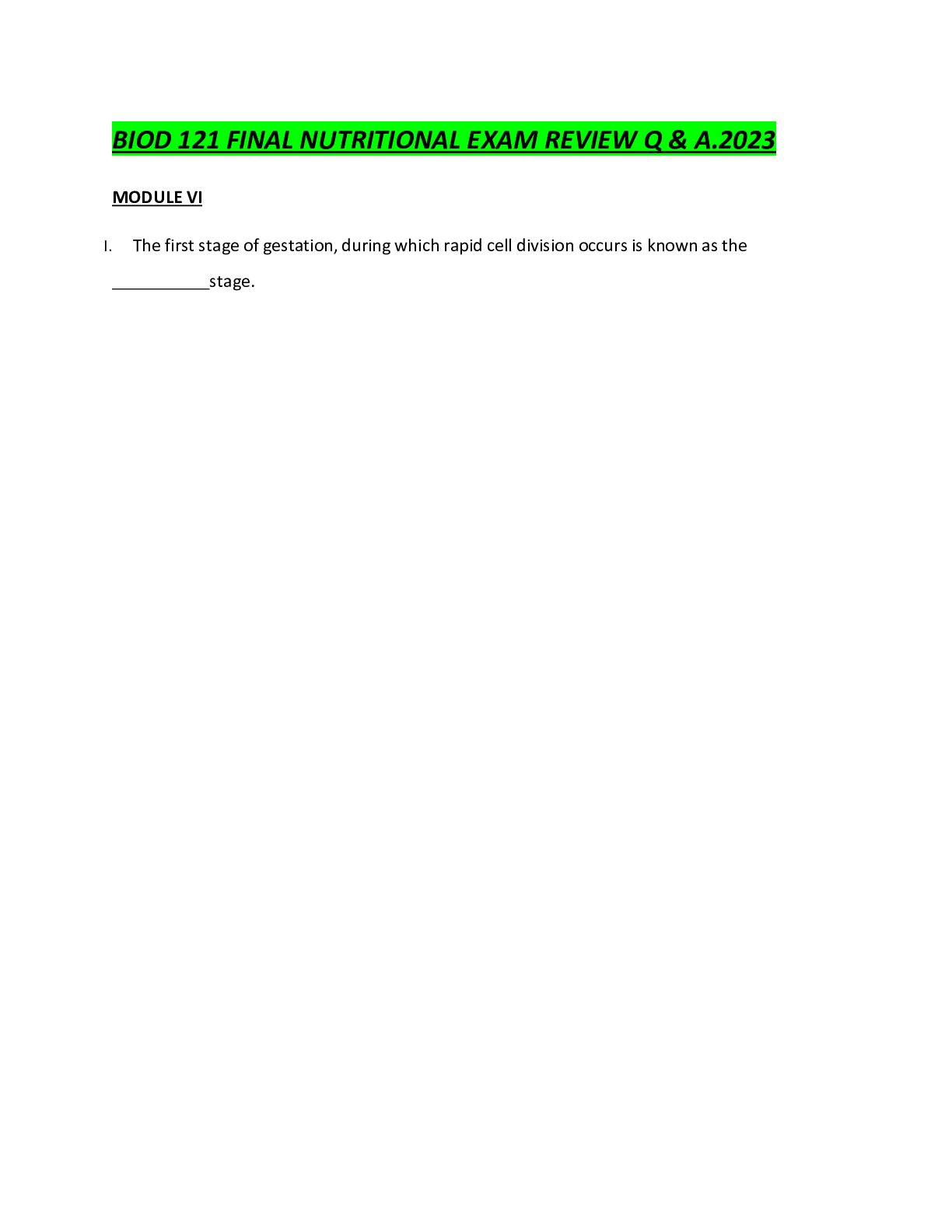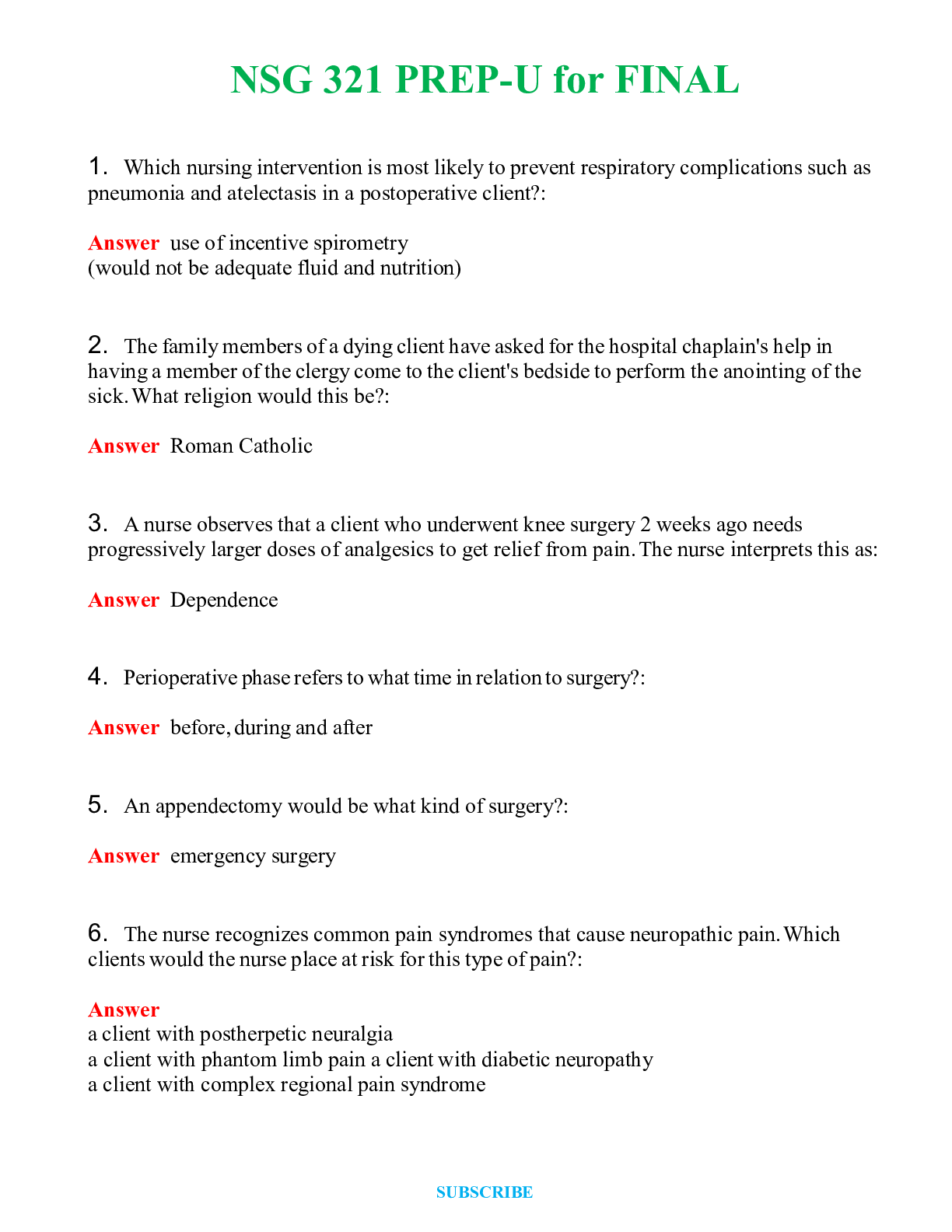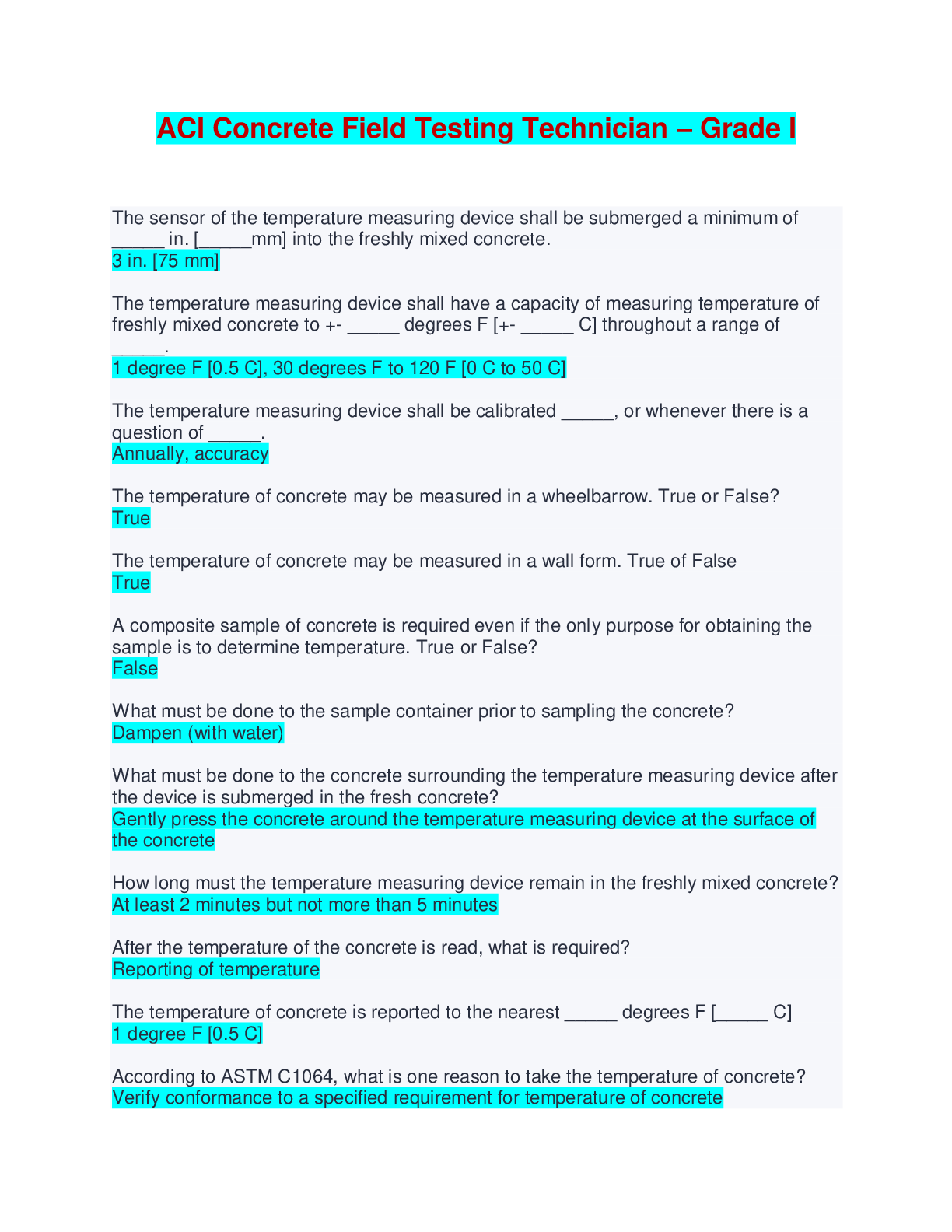Management > EXAM > Emailing_PVL3704-Multiple-choice-questions_2020. (All)
Emailing_PVL3704-Multiple-choice-questions_2020.
Document Content and Description Below
Tutorial Letter 201/1/2008 Choose the most correct option in every instance . If there is more than one correct option, choose the appropriate combined option. Question 1 to 3. The following fa... cts are relevant for questions 1 to 3. A has demanded payment from B of an amount of R50,000 which he believes B is owing. B has checked its records and has paid the amount in the bona fide belief that the amount is owing in terms of their contract. Unbeknown to B, his bookkeeper, C had already paid the amount a week earlier by way of an electronic funds transfer in to the account of A. At the time of the second payment A's account was overdrawn in the amount of R30,000 and was therefore in credit of R20,000 after the payment. A has taken R15,000 out of his account to pay his employees their monthly wages. He has also paid R10,000 for a luxury weekend after realising that his account was in credit. Question 1 Which statement best explains the nature of the claim against A? 1. B has a claim against A based on delict for a fraudulent misstatement. 2. B has contractual claim against A based on their contract. 3. B has an enrichment claim against A based on the condictio causa data causa non secuta. 5. B has no claim against A because he paid the amount voluntarily. 6. B has an enrichment claim against A based on the actio negotiorum gestorum utilis. Question 2 Which statement regarding the requirements for an enrichment action is correct? 2. A has been enriched at the expense of C, who made the payment. 3. A's enrichment is not unjustified as there was a contract between A and B. 4. A's enrichment is unlawful because he made a demand for payment at a time that it was not due. 5. B has been impoverished at the expense of the bank. 6. B has no claim because the requirements have not been met. Question 3 Which statement best explains the calculation of the enrichment claim? 1. B can claim an amount of R50,000 from A with an enrichment action. 2. B can only claim R20,000 from A because his account was overdrawn and the bank received the benefit of the other R30,000. 3. B can claim nothing as A has not been unjustifiably enriched at his expense. 4. B can claim only R25,000 because the rest of the enrichment amount has been spent on the wages and A's holiday. 6. B can claim only R35,000 because the rest of the enrichment has been lost on the wages paid. Question 4 In order to be successful with a claim based on the condictio indebiti, the plaintiff must prove the following fact(s) or requirement(s): 1. That the impoverished party made a payment that was not due. 2. That the enrichment was unlawful. 3. That the mistake of the impoverished party was excusable. 4. 1 and 2 and 3 are correct 5. 1 and 2 are correct Question 5 In which one of the following circumstances can the condictio indebiti be used? 1. Where a bank has made payment in terms of countermanded cheque. 3. Where a contract is rescinded due to a breach of contract. 4. Where a party has made an undue payment in terms of an illegal contract. 5. Where a party has made payment which is due but where the cause for the payment later falls away. 6. Where a party has paid the debt of a third party for purposes which benefits the paying party. Question 6-7 The following facts are relevant for Question 6 and 7. X has concluded a contract with Y to build a tennis court at a cost of R40,000 on the property it is renting from Z. It can be shown that the value of the property has increased by R20,000 due to the improvement. X has disappeared before paying Y for the work done. Y now wants to lodge a claim against Z, the owner of the property. Question 6 Which statement best explains the ground on which and amount that Y can claim? 1. Y has an enrichment claim against Z for an amount of R40,000. 2. Y has an enrichment claim against Z for an amount of R20,000. 4. X has an enrichment claim against Z for R40,000. 5. Y has an enrichment claim against X R 20,000. Question 7 Answer: T Which statement best explains the authority on which you based your answer in question 6? 2. In terms of the decision in Gouws v Jester Pools (Pty) Ltd 1968 3 SA 63 (T) it was held that Y has a claim against Z because Z had been enriched at his expense. 3. The decision in the Gouws case was confirmed Buzzard Electrical v 158 Jan Smuts Avenue Investments 1996 4 SA 19 (A) 4. The decision in the Gouws case was rejected in Buzzard Electrical v 158 Jan Smuts Avenue Investments 1996 4 SA 19 (A) 5. The decision in the Gouws case was confirmed in Brooklyn House Furnishers Ltd v Knoetze & Sons 1970 3 SA 264 (A) Question 8 G has noticed that his neighbour's (H) stud bull is seriously ill. The neighbour is currently on a hiking trip in Nepal and cannot be reached. G has called out a veterinary doctor to attend to the bull and has paid all his bills as well as for the medication. The total cost was R12,000. Despite the treatment the bull has died. Which statement best explains the basis of G's possible claim against H? 1. G has no claim against H because the bull has died and the expenses have been wasted. 2. G has an enrichment claim against H for his expenses as necessary expenses. 4. G has a claim against H in terms of the actio negotiorum gestorum utilis for R12,000. 5. G's claim against H in terms of the actio negotiorum gestorum contraria will fail because the bull died. 6. G has a claim against H as the agent of H. Question 9 G has noticed that his neighbour's (H) stud bull is seriously ill. The neighbour is currently on a hiking trip in Nepal and cannot be reached. G has called out a veterinary doctor to attend to the bull and has paid all his bills as well as for the medication. The total cost was R12,000. Despite the treatment the bull has died. G is a meddlesome neighbour and H has previously warned him not to do anything on his farm under any circumstances, but rather to call K, if G should notice any problem. G did not bother to call K. Which statement best explains the basis of G's possible claim against H? 2. G has an enrichment claim against H for his expenses as necessary expenses. 3. G has a claim against H in terms of the actio negotiorum gestorum contraria for R12,000. 4. G has a claim against H in terms of the actio negotiorum gestorum utilis for R12,000. 5. G's claim against H in terms of the actio negotiorum gestorum contraria will fail because the bull died. 6. G has a claim against H as the agent of H. Question 10: Which statement correctly explains the possession or occupation of another's property? ........................................................................................................continued............................................................................................... [Show More]
Last updated: 1 year ago
Preview 1 out of 332 pages

Reviews( 0 )
Document information
Connected school, study & course
About the document
Uploaded On
Aug 05, 2022
Number of pages
332
Written in
Additional information
This document has been written for:
Uploaded
Aug 05, 2022
Downloads
0
Views
30

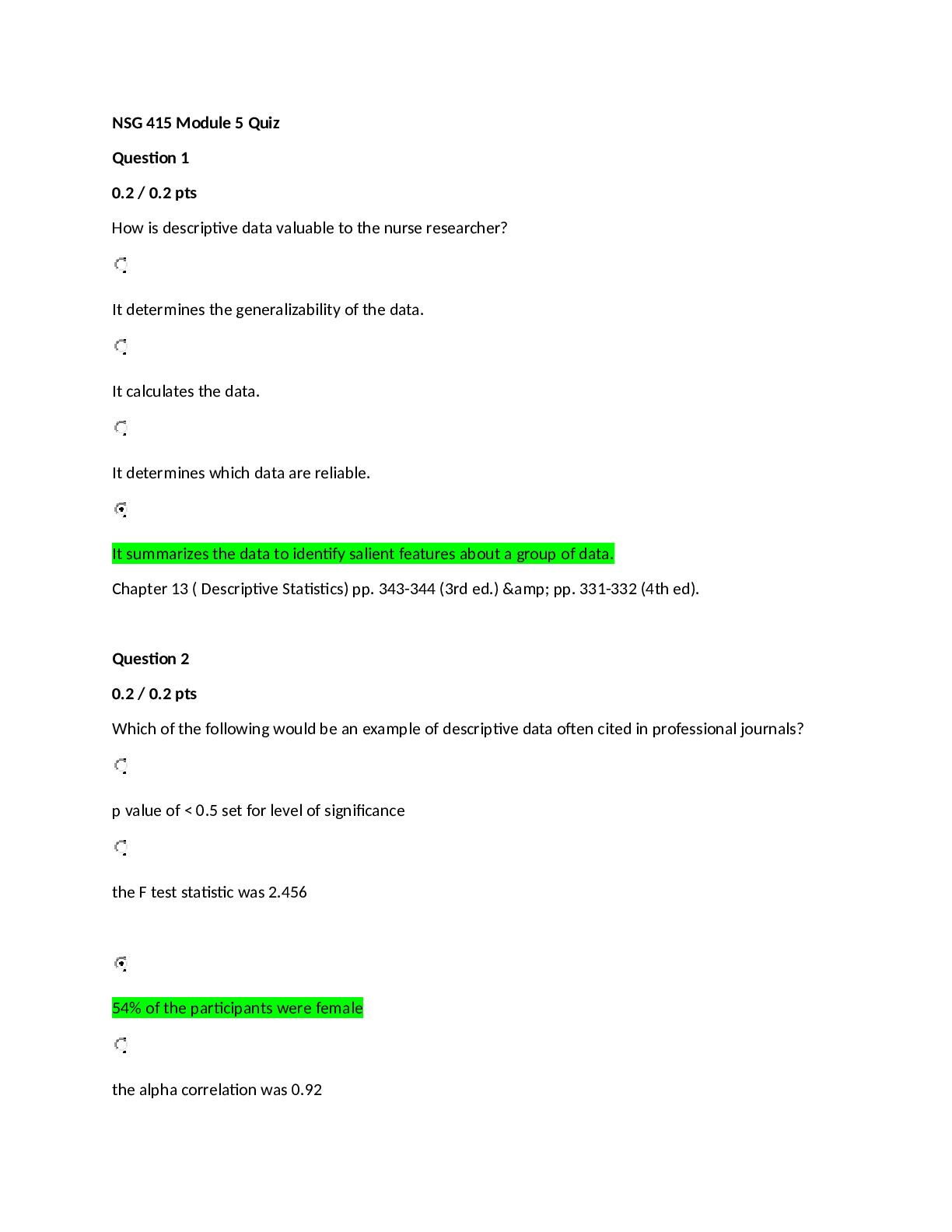
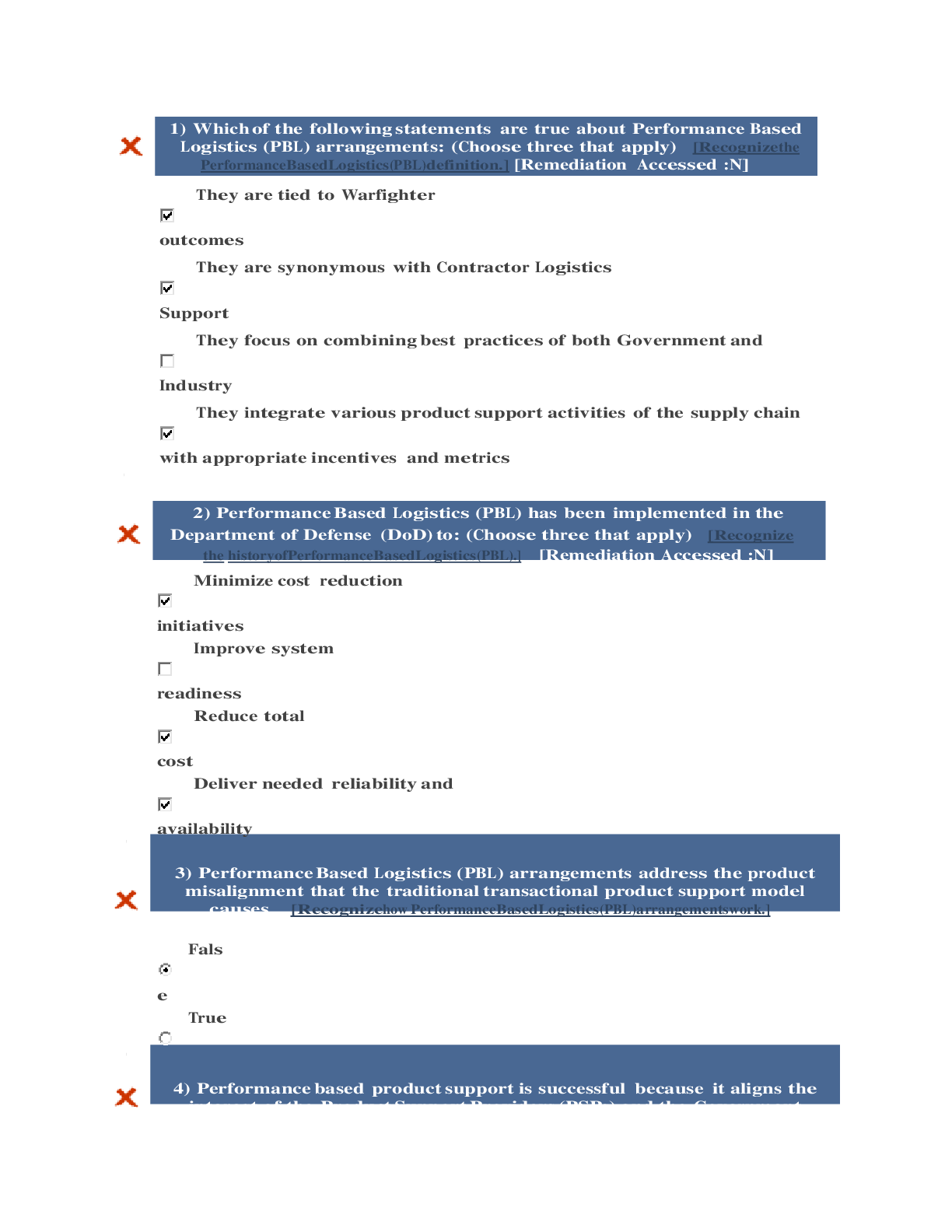

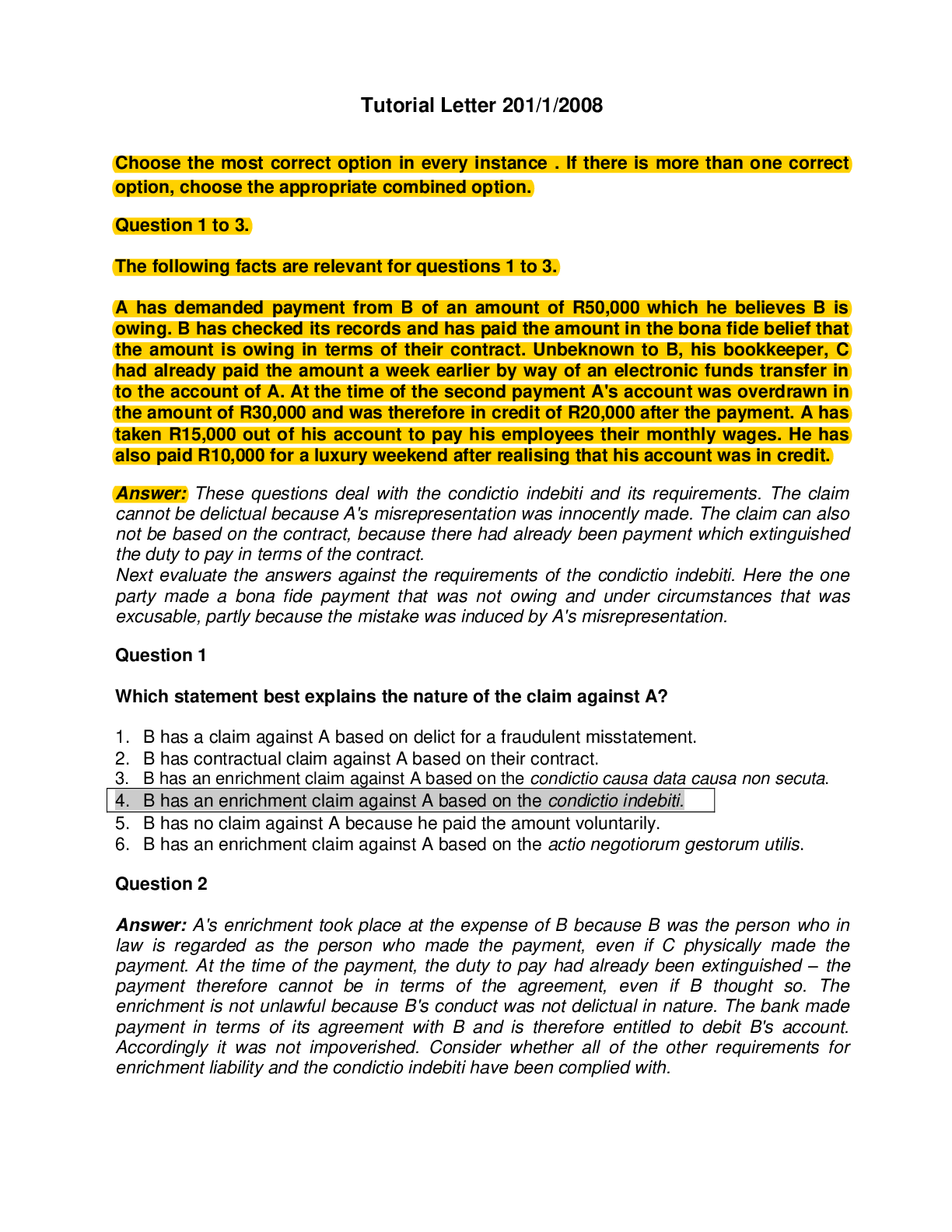

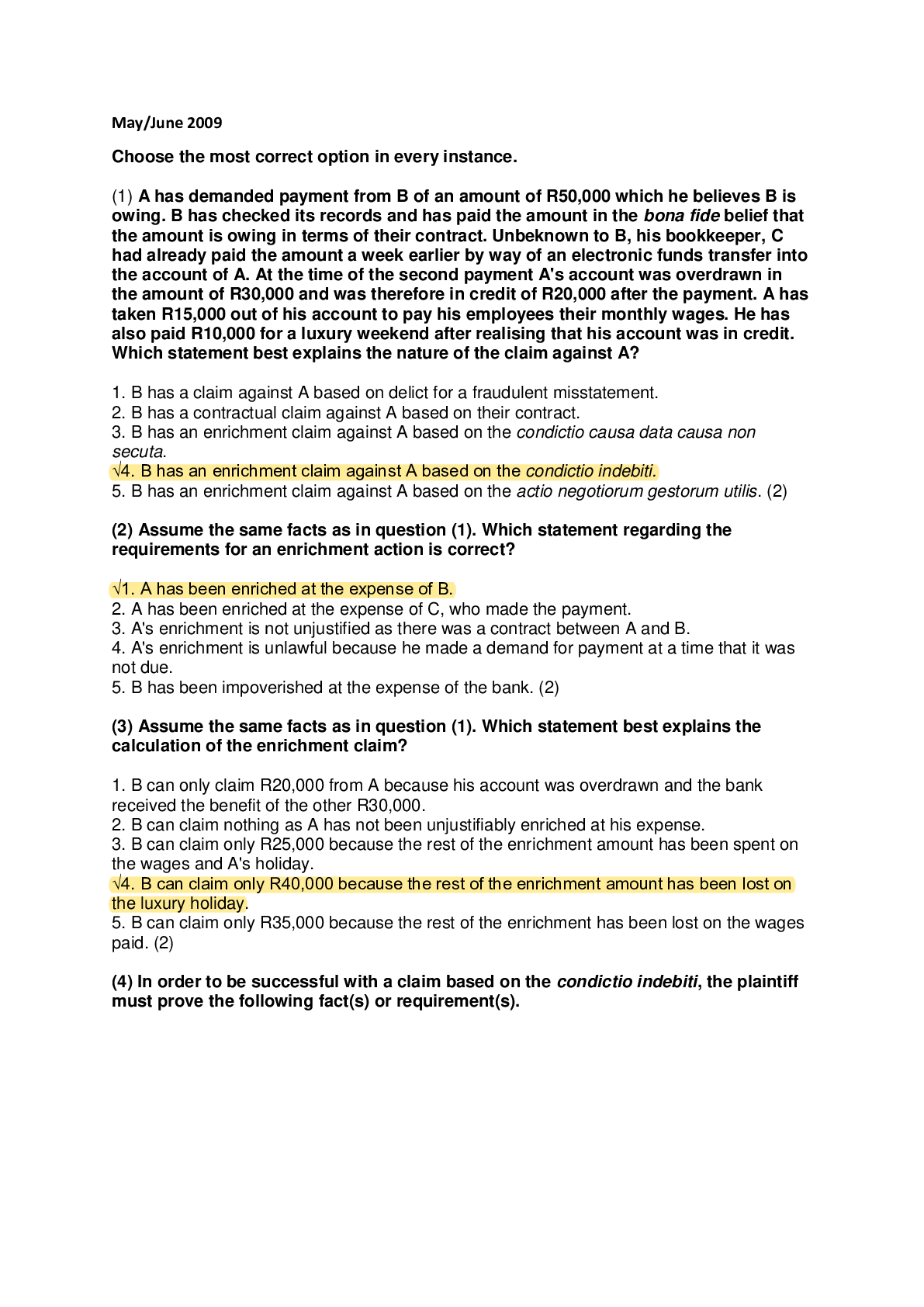

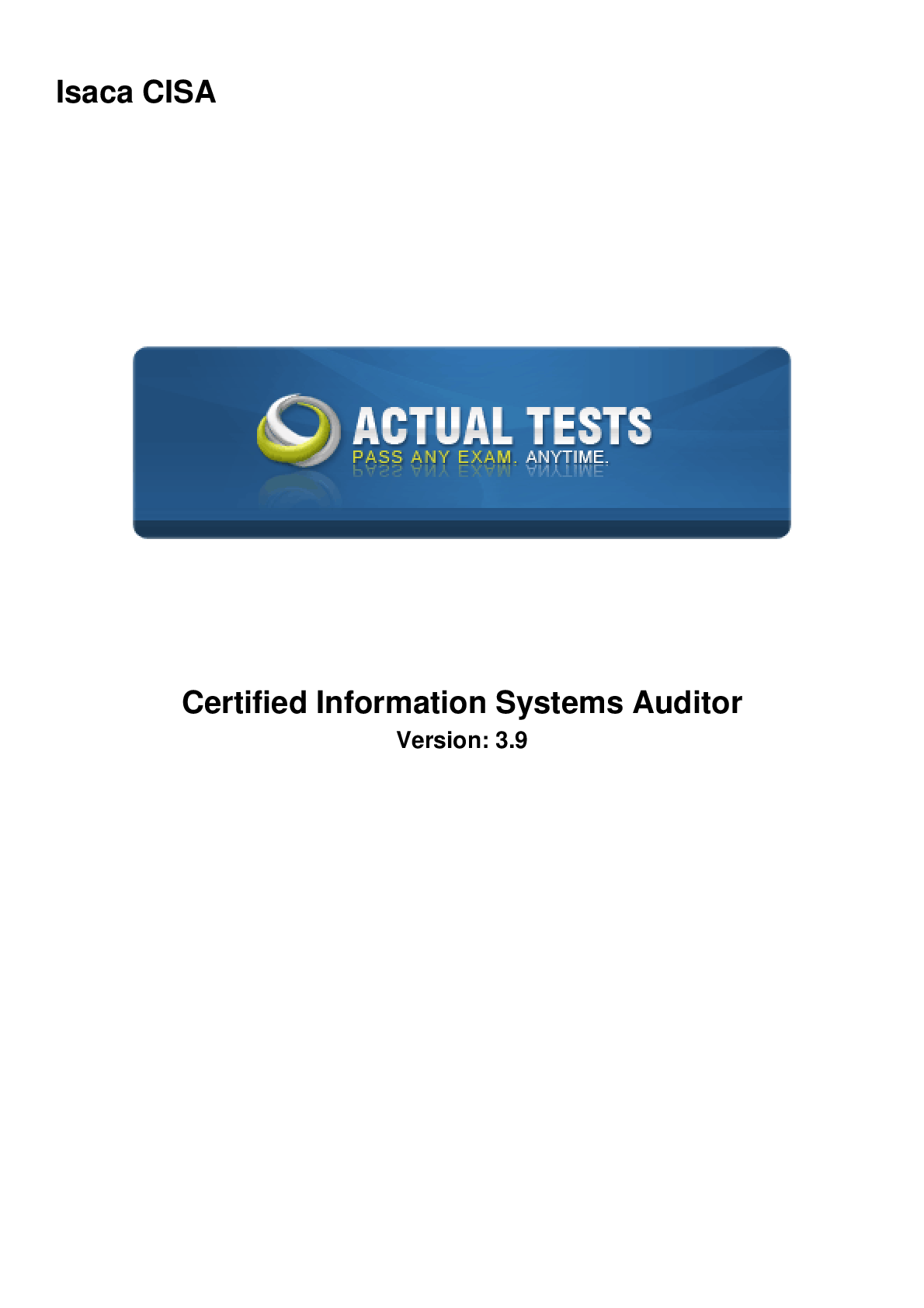

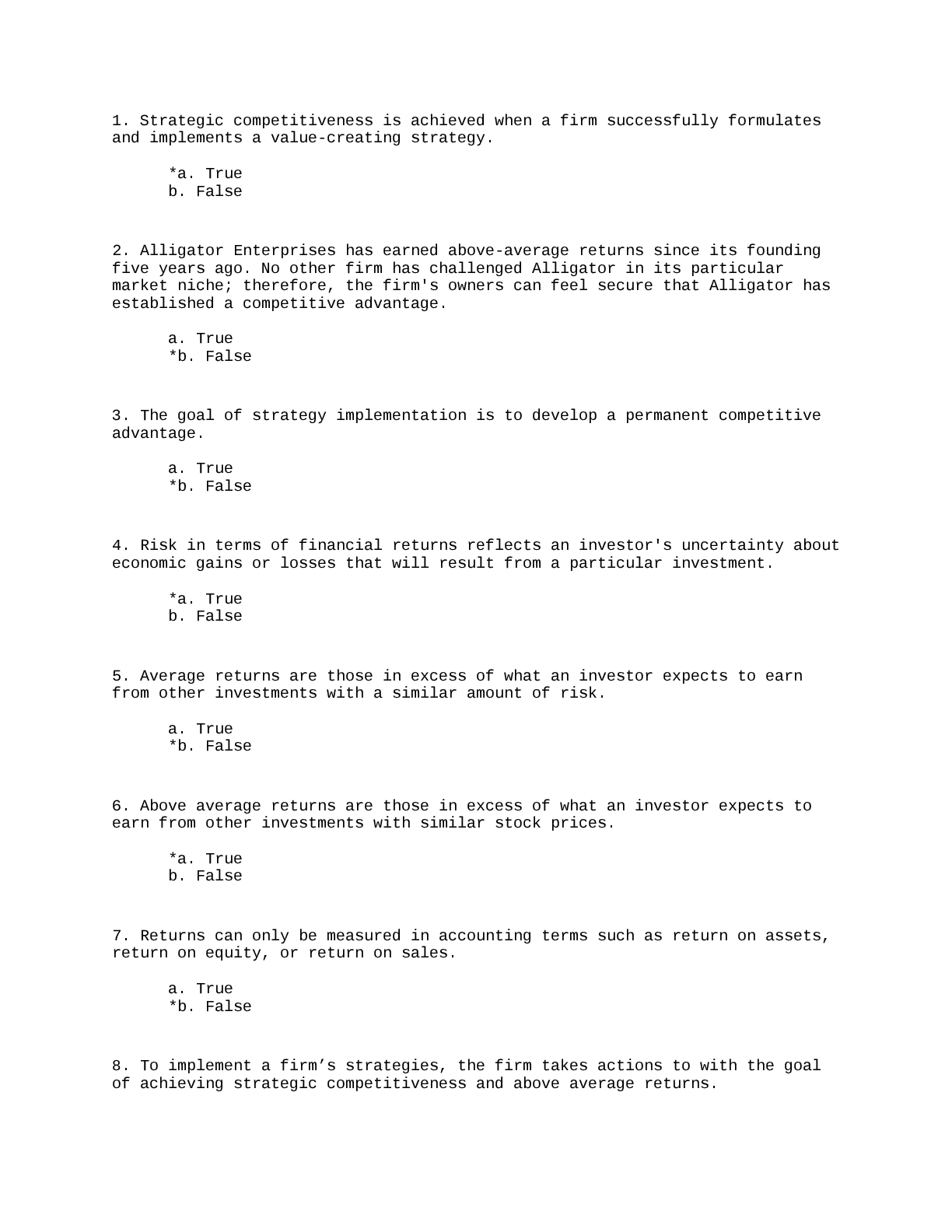
.png)
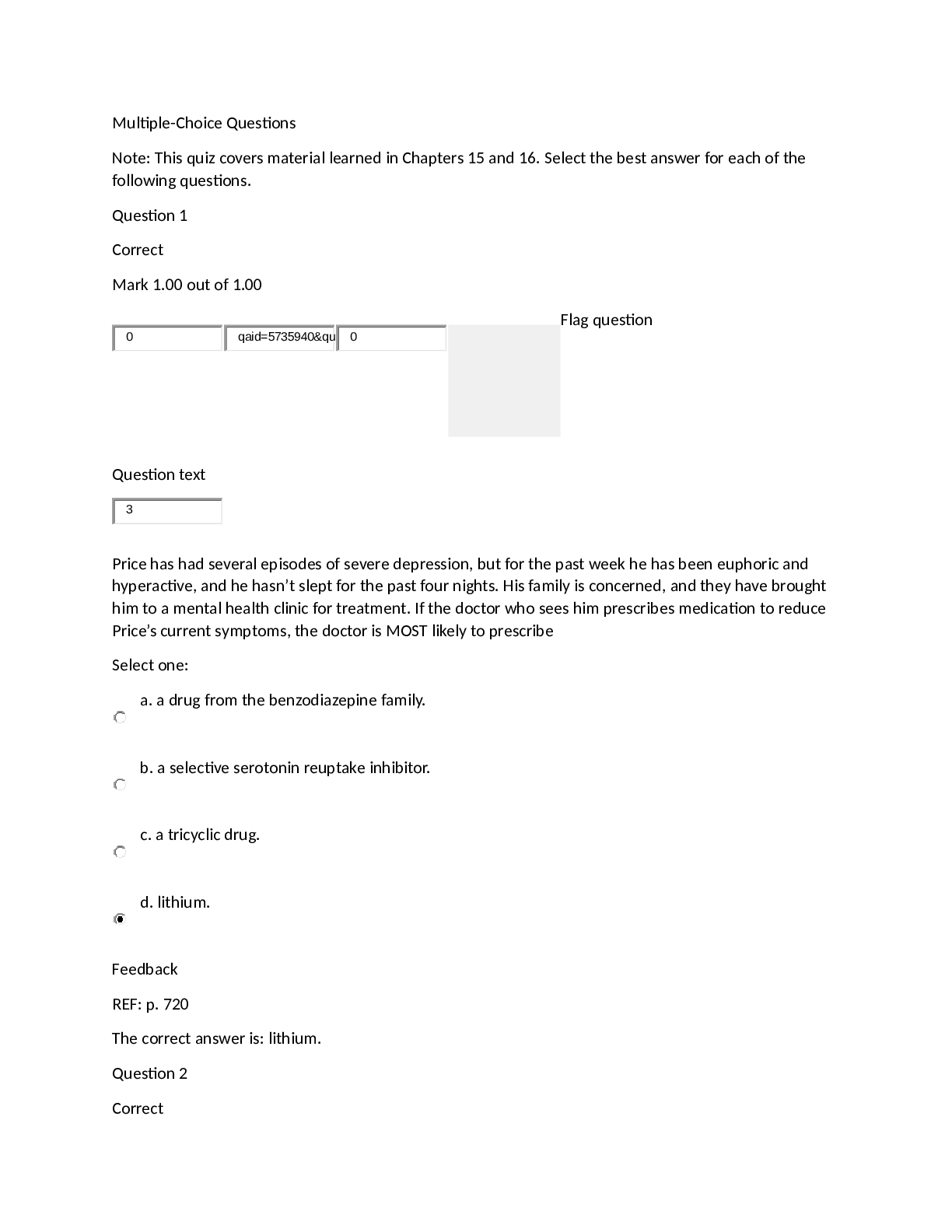
.png)
